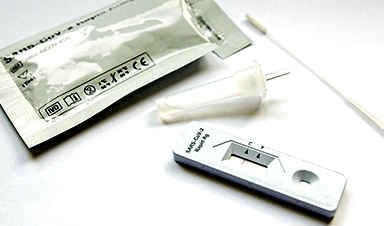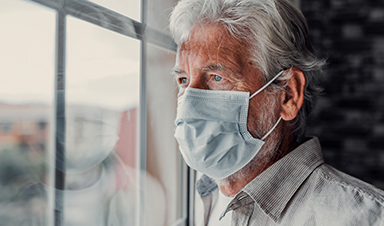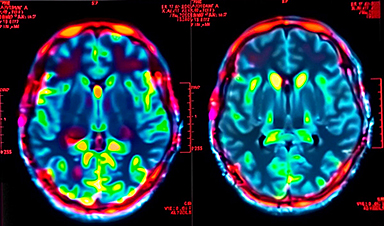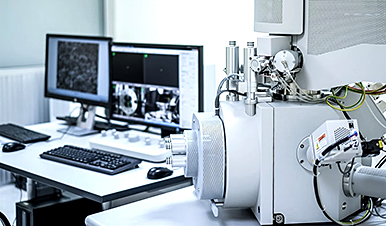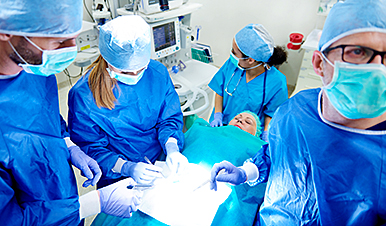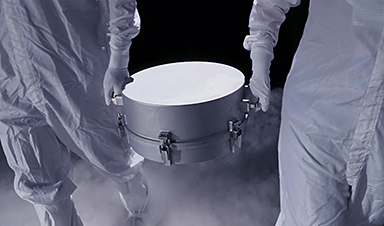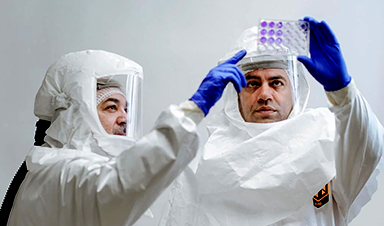The rapid mass testing strategy costing just £1 a day per child can get children back to school and economies up and running, according to experts.
That is the small price of the rapid mass testing across schools in the UK, which is also hard on the heels of one of the world’s swiftest and most successful vaccination programmes.
A double whammy of rapid testing and vaccine deployment applied internationally could lead to a reduction of the human and economic hardship caused by much-criticised lockdown strategies, as well as the continued failure of ‘Track and Trace,’ which has swallowed up £32 billion in the UK.
The UK Government’s investment in vaccines started early, but its equally far-sighted adoption of inexpensive lateral flow test (LFT) kits is less well known.
The economical LFT utilizes nanoparticles to detect virus fragments in a test sample, identifying whether a subject is SARS-CoV-2 asymptomatic within 30 minutes. An individual can immediately isolate after a positive test, preventing transmission of COVID-19 at a rapid pace.
Some early scepticism about the devices has since been overwhelmed by new data and a robust rebuttal from Dr Susan Hopkins, COVID-19 Strategic Response Director to Public Health England, who said:
“Up to one in three people who have coronavirus never show any symptoms (asymptomatic) but that does not mean they are not infectious. Using LFTs enables us to rapidly identify people in the population who are asymptomatic, with results produced in 30 minutes.
“Lateral flow devices are effective at finding people with high viral loads who are most infectious and most likely to transmit the virus to others.”
And she added that the latest data suggested LFTs “are at least 99.9% specific which means that the risk of false positives is extremely low – less than one in a thousand.”
UK Government-sponsored LFT use in workplaces is already widespread, with nearly 50,000 UK businesses already registered for free kits, so that employees can be tested at least twice a week with fast results, enabling them to return to work and their children to get back into the classroom.
Each pupil must take two tests (£3.50 each) a week to show whether they need to be taken out of class to avoid infecting others and the same approach will be used for parents in the workplace.
“That’s remarkable value-for-money. £1 a day for an ‘insurance policy’ to enable schools to open, mums and dads to properly return to work, and the country to accelerate out of lockdown with the re-opening of hospitality and major venues no longer a distant prospect,” said Paul Sheedy, Co-founder of the not-for-profit World Nano Foundation (WNF) that promotes healthcare innovation and believes mass testing kits using nanotechnology are central to future pandemic protection.
Image Credit: Nano
Post by Amanda Scott, NA CEO. Follow her on twitter @tantriclens
Thanks to Heinz V. Hoenen. Follow him on twitter: @HeinzVHoenen
News
Does COVID increase the risk of Alzheimer’s disease?
Scientists discover that even mild COVID-19 can alter brain proteins linked to Alzheimer’s disease, potentially increasing dementia risk—raising urgent public health concerns. A recent study published in the journal Nature Medicine investigated whether both mild and [...]
New MRI Study Reveals How Cannabis Alters Brain Activity and Weakens Memory
A massive new study sheds light on how cannabis affects the brain, particularly during cognitive tasks. Researchers analyzed over 1,000 young adults and found that both heavy lifetime use and recent cannabis consumption significantly reduced brain [...]
How to Assess Nanotoxicity: Key Methods and Protocols
With their high surface area and enhanced physicochemical properties, nanomaterials play a critical role in drug delivery, consumer products, and environmental technologies. However, their nanoscale dimensions enable interactions with cellular components in complex and [...]
Nanotech drug delivery shows lasting benefits, reducing need for repeat surgeries
A nanotechnology-based drug delivery system developed at UVA Health to save patients from repeated surgeries has proved to have unexpectedly long-lasting benefits in lab tests – a promising sign for its potential to help human patients. [...]
Scientists Just Found DNA’s Building Blocks in Asteroid Bennu – Could This Explain Life’s Origins?
Japanese scientists detected all five nucleobases — building blocks of DNA and RNA — in samples returned from asteroid Bennu by NASA’s OSIRIS-REx mission. NASA’s OSIRIS-REx mission brought back 121.6 grams of asteroid Bennu, unveiling nitrogen-rich organic matter, including DNA’s essential [...]
AI-Designed Proteins – Unlike Any Found in Nature – Revolutionize Snakebite Treatment
Scientists have pioneered a groundbreaking method to combat snake venom using newly designed proteins, offering hope for more effective, accessible, and affordable antivenom solutions. By utilizing advanced computational techniques and deep learning, this innovative [...]
New nanosystem offers hope for improved diagnosis and treatment of tongue cancer
A pioneering study has unveiled the Au-HN-1 nanosystem, a cutting-edge approach that promises to transform the diagnosis and treatment of tongue squamous cell carcinoma (TSCC). By harnessing gold nanoparticles coupled with the HN-1 peptide, [...]
Global Trust in Science Is Stronger Than Expected – What’s Next?
A landmark global survey conducted across 68 countries has found that public trust in scientists remains robust, with significant support for their active involvement in societal and political matters. The study highlights the public’s [...]
Microplastics in the bloodstream may pose hidden risks to brain health
In a recent study published in the journal Science Advances, researchers investigated the impact of microplastics on blood flow and neurobehavioral functions in mice. Using advanced imaging techniques, they observed that microplastics obstruct cerebral blood [...]
AI Surveillance: New Study Exposes Hidden Risks to Your Privacy
A new mathematical model enhances the evaluation of AI identification risks, offering a scalable solution to balance technological benefits with privacy protection. AI tools are increasingly used to track and monitor people both online [...]
Permafrost Thaw: Unleashing Ancient Pathogens and Greenhouse Gases
Permafrost is a fascinating yet alarming natural phenomenon. It refers to ground that remains frozen for at least two consecutive years. Mostly found in polar regions like Siberia, Alaska, and Canada, permafrost plays a [...]
Frequent social media use tied to higher levels of irritability
A survey led by researchers from the Center for Quantitative Health at Massachusetts General Hospital and Harvard Medical School has analyzed the association between self-reported social media use and irritability among US adults. Frequent [...]
Australian oysters’ blood could hold key to fighting drug-resistant superbugs
Protein found in Sydney rock oysters’ haemolymph can kill bacteria and boost some antibiotics’ effectiveness, scientists discover An antimicrobial protein found in the blood of an Australian oyster could help in the fight against [...]
First U.S. H5N1 Death Sparks Urgency: Scientists Warn Bird Flu Is Mutating Faster Than Expected
A human strain of H5N1 bird flu isolated in Texas shows mutations enabling better replication in human cells and causing more severe disease in mice compared to a bovine strain. While the virus isn’t [...]
AI Breakthrough in Nanotechnology Shatters Limits of Precision
At TU Graz, a pioneering research group is leveraging artificial intelligence to drastically enhance the way nanostructures are constructed. They aim to develop a self-learning AI system that can autonomously position molecules with unprecedented precision, potentially [...]
How Missing Sleep Lets Bad Memories Haunt Your Mind
Research reveals that a lack of sleep can hinder the brain’s ability to suppress unwanted memories and intrusive thoughts, emphasizing the importance of restful sleep for mental health. Sleep deprivation has been found to [...]
